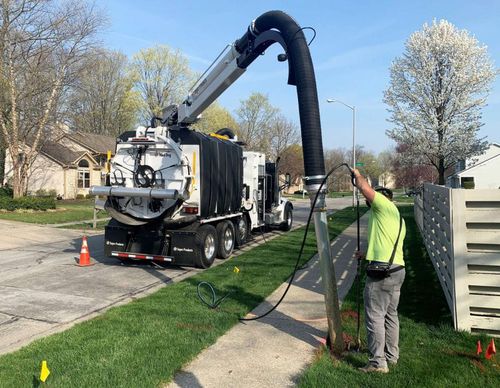Hydro-excavation is a crucial method employed in various industries for digging and exposing underground utilities with a combination of high-pressure water and vacuum technology. Ensuring safety in hydro-excavation operations is paramount to protect both workers and the surrounding environment. Comprehensive safety measures must be implemented to mitigate potential hazards associated with the high-pressure water, excavation equipment, and the excavation process itself. First and foremost, proper training is essential for all personnel involved in hydro-excavation operations. Workers should receive thorough training on the operation of hydro-excavation equipment, understanding the principles of hydro-excavation, and familiarizing themselves with potential hazards. Training programs should cover emergency procedures, including what to do in case of equipment malfunctions, contact with underground utilities, or adverse weather conditions. Regular refresher courses should be conducted to keep workers up-to-date on safety protocols and industry best practices. Personal protective equipment PPE is a fundamental component of ensuring worker safety in hydro-excavation. All personnel engaged in hydro-excavation tasks should wear appropriate PPE, including high-visibility clothing, steel-toed boots, gloves, and eye protection.

Additionally, workers must be equipped with hearing protection due to the noise generated by the high-pressure water equipment and vacuum systems. Respiratory protection may also be necessary when working in environments with dust or other airborne contaminants. Before commencing any hydro-excavation operation, a thorough site assessment should be conducted. This includes identifying the location of underground utilities, assessing soil conditions, and evaluating the surrounding environment for potential hazards. Utilizing ground-penetrating radar GPR or other non-destructive techniques can aid in accurately mapping the underground infrastructure, reducing the risk of accidental damage to utility lines during excavation. To prevent unauthorized personnel from entering the excavation area, proper barricading and signage should be implemented. Clear communication of the work zone boundaries helps prevent accidents and ensures the safety of both workers and bystanders. Additionally, establishing a designated entry and exit point for workers helps manage access to the site and enables efficient evacuation in case of emergencies.
Regular equipment maintenance and inspections are critical to preventing malfunctions and ensuring the safe operation of hydro-excavation machinery. Pre-operational checks should be conducted before each use to identify any issues with the equipment. This includes inspecting hoses, nozzles, vacuum tubes, and other components for signs of wear or damage. Any faulty equipment should be immediately taken out of service and repaired or replaced to prevent accidents. Emergency response plans should be in place to address unforeseen circumstances. This includes procedures for dealing with equipment failures, injuries, or accidental strikes on underground utilities. All personnel should be well-versed in these emergency protocols, and regular drills should be conducted to test the effectiveness of the response plan. In conclusion, safety in hydrovac excavation companies in Green Bay operations is a multifaceted approach that encompasses training, personal protective equipment, site assessment, proper signage, equipment maintenance, and emergency preparedness. Adhering to these safety measures is crucial for preventing accidents, protecting workers, and ensuring the success of hydro-excavation projects while minimizing the impact on the environment.